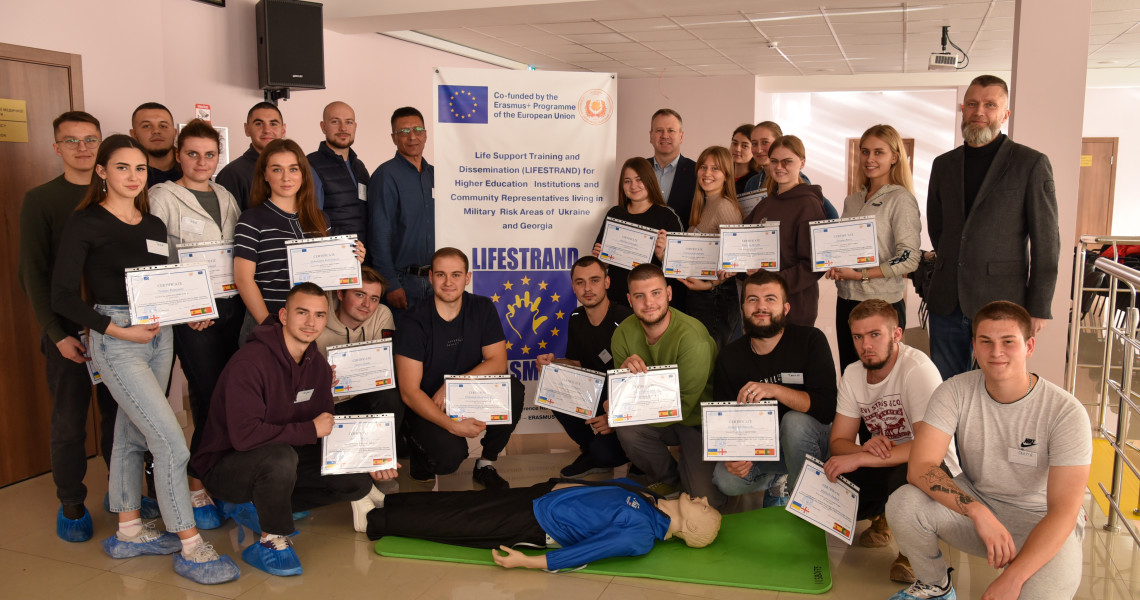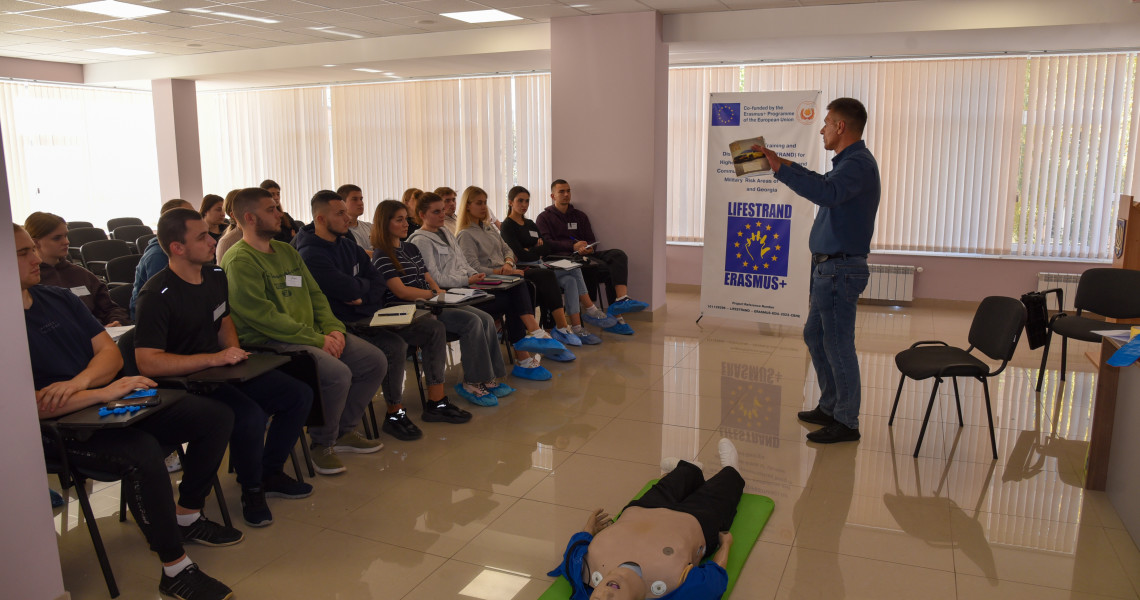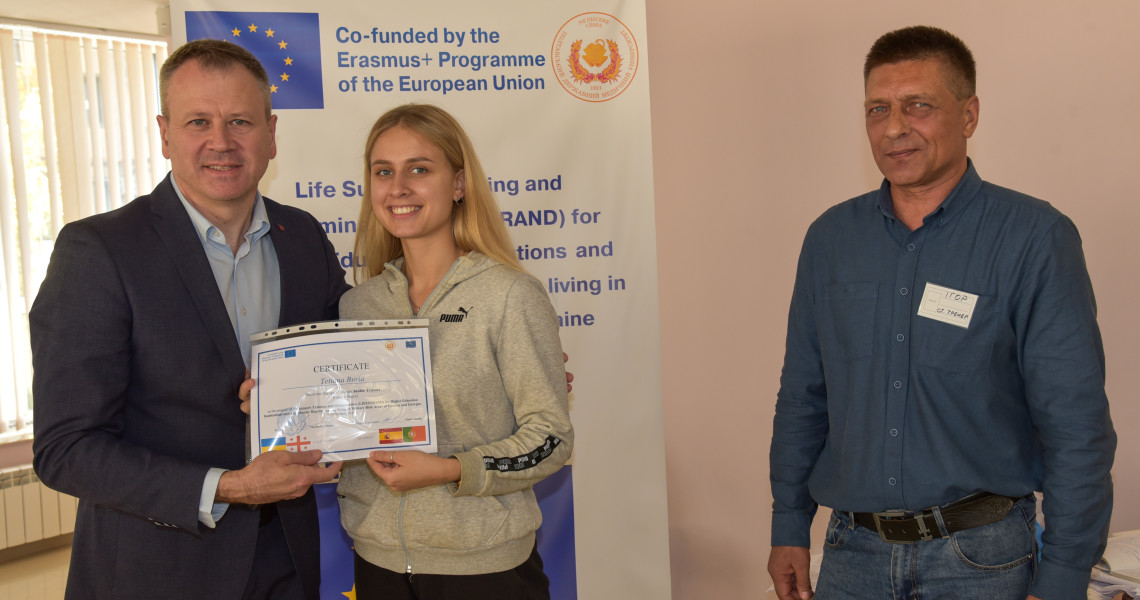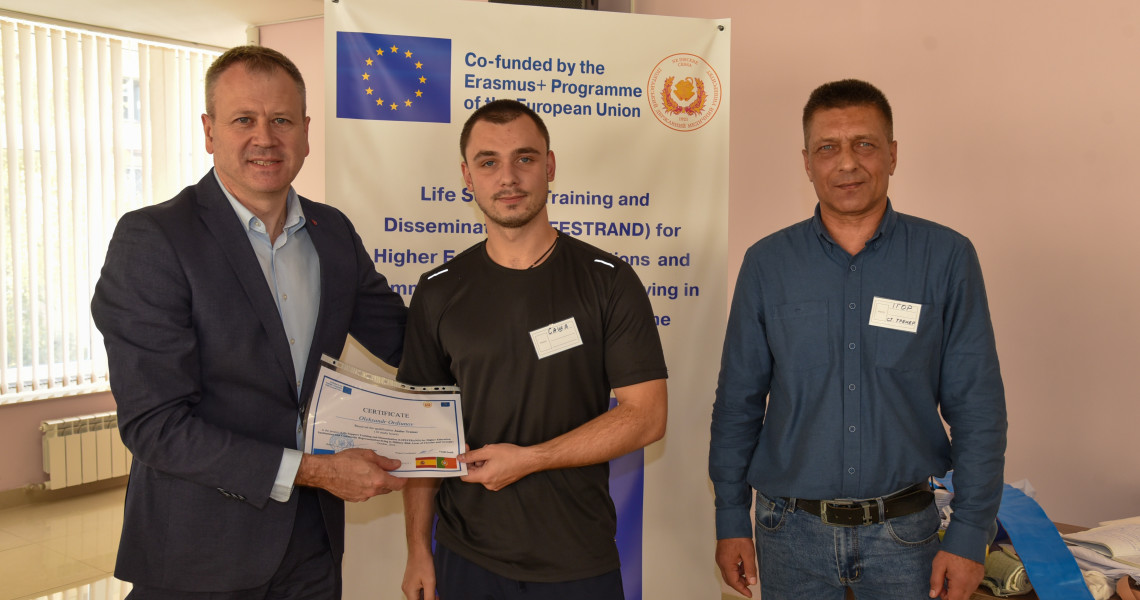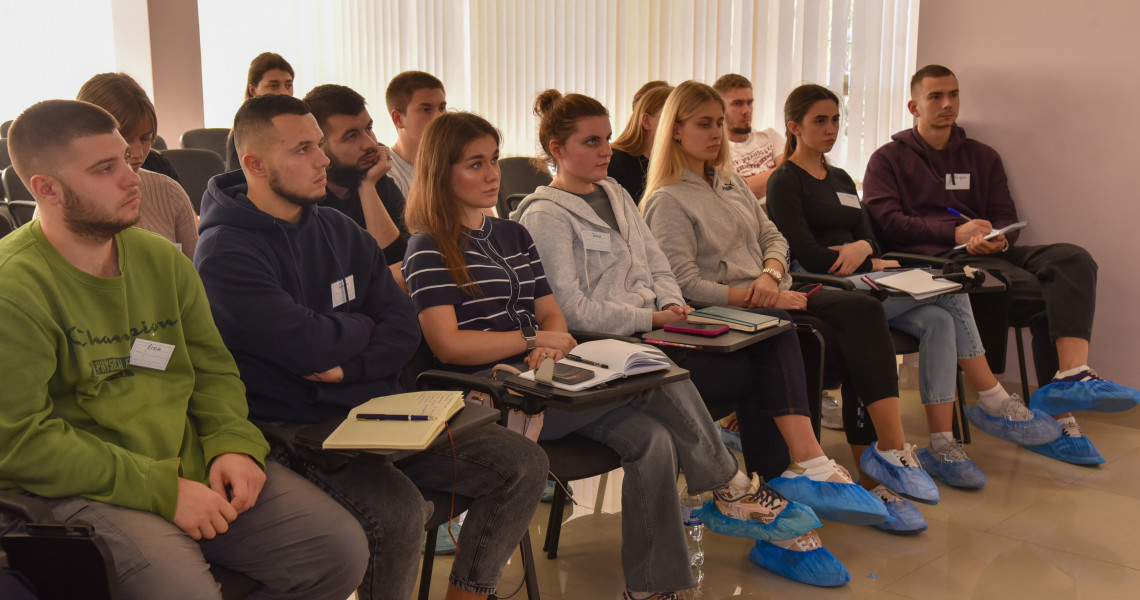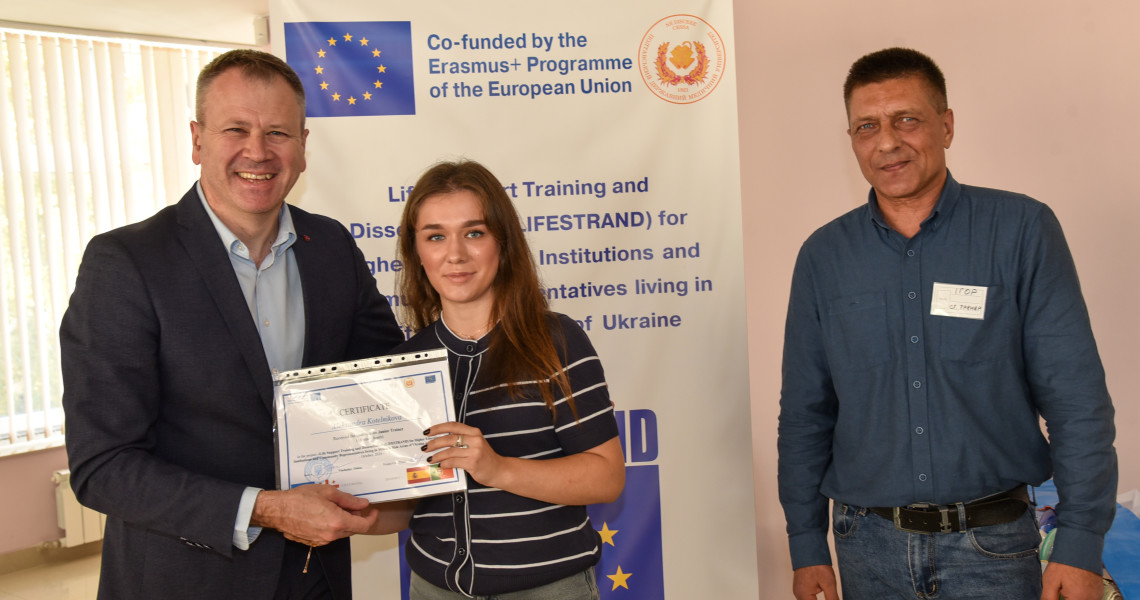On October 23-24, the cycle of training sessions for Junior Trainers in pre-hospital care, as part of the LIFESTRAND project implemented by a consortium of universities from Georgia, Spain, Portugal and Ukraine, concluded at PSMU. The training was led by expert senior trainers: Volodymyr Koka and Ihor Pratsko, lecturers from the Department of Disaster Medicine and Military Medicine; Yuliia Cherniavska, Associate Professor of the Department of Pediatrics No. 1 with Neonatology; Serhii Kononenko and Yevhenii Chip, Assistant Professors of the Department of Surgery No. 3. They had undergone theoretical and practical training, including skill drills and simulated scenarios of pre-hospital care during emergencies related to military actions, organized at the University of Santiago de Compostela (Spain) and the University of Porto (Portugal).
Participants, including faculty members of the university departments and 3-6-year students of the Medical Faculty No. 1 and No. 2 of PSMU, were trained in pre-hospital care during the two-day sessions and received certificates. Eventually, Junior Trainers, under the guidance of Senior Trainers, will train the civilian population life-saving pre-hospital care skills in emergencies, considering the current dangerous situation caused by the russian invasion.
Feedback from course participant Olena Melashchenko, Assistant of the Department of Pediatrics No. 1 with Neonatology:
"The training for Junior Trainers within the LIFESTRAND project of the Erasmus+ program, held on October 21-22 at the PSMU Simulation Center, was engaging, highly informative, and productive. The training structure was designed to maximize the acquisition and practice of basic life support skills, assistance to victims, and methods for stopping life-threatening bleeding. After receiving theoretical information, we worked in groups under the supervision of Senior Trainers, who simulated various clinical situations, monitored our skill performance on mannequins according to algorithms, helped correct mistakes, and answered additional questions raised by the trainees. There was also a focus on how to provide assistance as a team and communicate effectively. A separate part of the training was dedicated to the methodology of further teaching pre-hospital care skills to civilian population, which was also very insightful."






